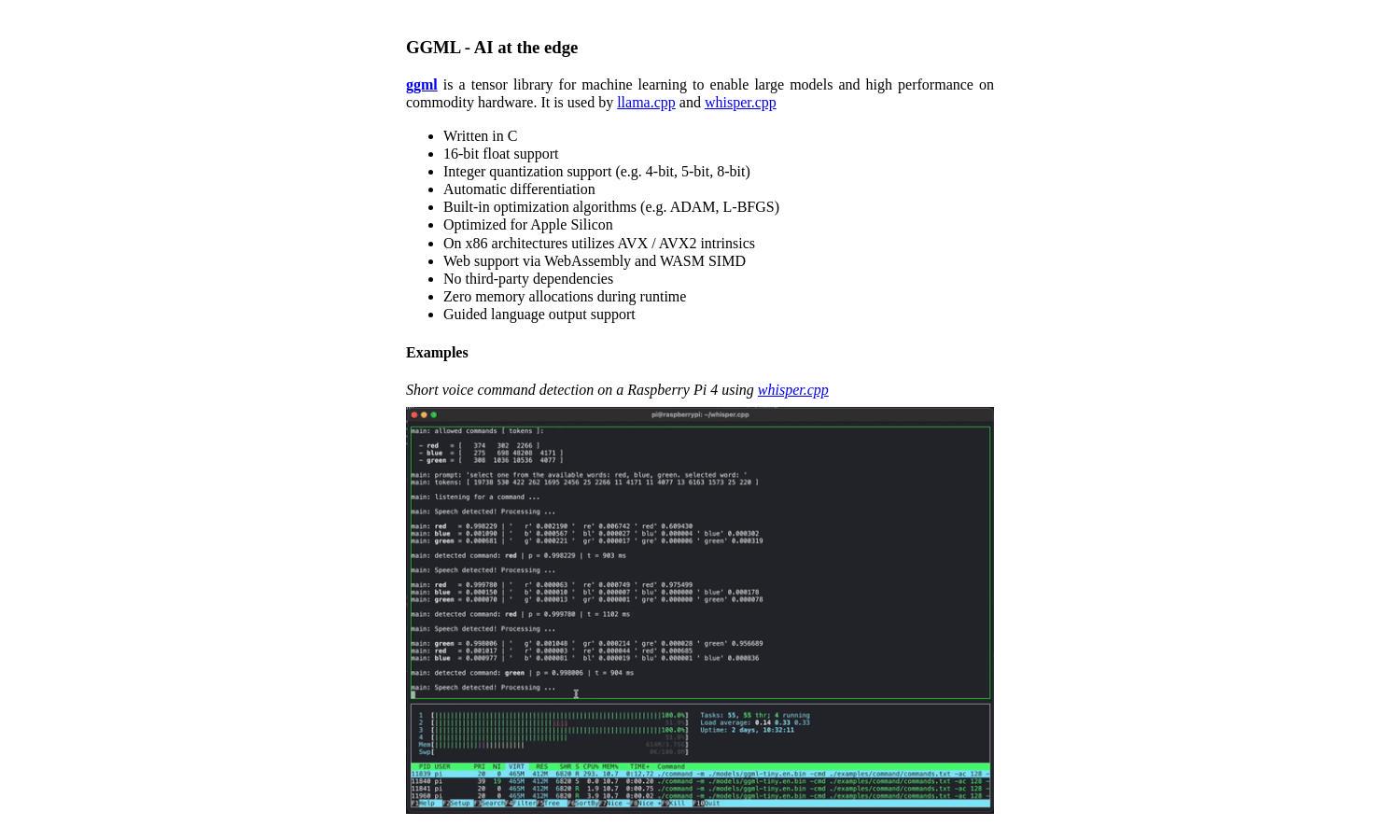ggml.ai

About ggml.ai
ggml.ai is a cutting-edge tensor library focused on enabling scalable machine learning on everyday hardware. Ideal for developers, it supports advanced features like integer quantization and automatic differentiation, allowing users to seamlessly run large models. ggml.ai fosters innovation in on-device inference for everyone.
ggml.ai offers a free, open-source library under the MIT license, encouraging contributions. While the core features are free, future premium extensions may be available for commercial use. Users can support the project by sponsoring contributors to enhance their experience and expand ggml.ai's capabilities.
ggml.ai features a user-friendly interface designed for clarity and efficiency. The intuitive layout allows for easy navigation, helping developers quickly access core functionalities and documentation. Unique design elements contribute to a seamless browsing experience that promotes interaction and learning within the ggml.ai community.
How ggml.ai works
Users engage with ggml.ai by first exploring its extensive documentation and key features. They can download the library and integrate it into their projects with ease, utilizing its optimizations for machine learning tasks. Users benefit from community contributions, tutorials, and support, enhancing their experience with ggml.ai.
Key Features for ggml.ai
Efficient Model Inference
ggml.ai boasts efficient model inference capabilities, allowing users to run large machine learning models on standard hardware. This unique feature makes it ideal for developers seeking to maximize performance without investing in expensive equipment, streamlining the process and enhancing productivity in AI projects.
Cross-Platform Support
ggml.ai provides robust cross-platform support, enabling seamless operation across various operating systems including Mac, Windows, Linux, and more. This versatility ensures that developers can deploy their machine learning applications on a wide range of devices, broadening the potential user base and enhancing accessibility.
Automatic Differentiation
The automatic differentiation feature of ggml.ai simplifies the training of machine learning models. By automating complex calculations, it allows developers to focus on model design rather than mathematical intricacies, ensuring efficient development cycles and improved accuracy in results while maximizing project outcomes.
You may also like:








